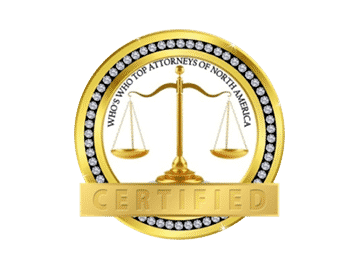Health Insurance Liens
What Is a Health Insurance Lien and Why Am I Paying It Out of My Settlement?
A lien is simply a demand for reimbursement for a debt. In personal injury, a debt is formed when your health insurance pays for medical bills that arose from injuries caused by an at-fault party. The at-fault party, the defendant, must pay the debt.
Any time you are injured due to the negligence of another person, your health insurance company has the right to be reimbursed by the negligent person through your personal injury settlement.
Imagine you are rear-ended on the highway by a man named Joe. You are hurt and are taken by rescue to the hospital. When you arrive at the hospital, you provide your health insurance card. The hospital submits the bill to your health insurance and your health insurance will pay for the medical bill minus your copays or deductibles. When your health insurance pays the medical bill, they have a right to be reimbursed by Joe because he was at fault and caused your injuries. This right is called a lien and they become a lienholder.
After a settlement is reached with Joe’s car insurance company, we obtain the final lien from your health insurance provider. We verify the charges are related to your accident and request a reduction. After we receive your settlement check we issue payment to your health insurance to satisfy the lien. Satisfy means to pay and resolve the lien so your health insurance can close their file.
Types of Liens
There are several types of liens in personal injury cases, but health insurance is the most common. Health insurance liens are either statutory (based off of a statute) or contractual (based off of a contract).
Private health insurance has a contractual right to get reimbursed by the at-fault party. The right to get reimbursed is based off of the contract language in their policy with the injured party. Every private health insurance policy is different and we review the contract.
Medicare, Medicaid, Veterans Administration, and ERISA Plans liens are based off of statutes. Medicare is a federal lien and Medicaid is a state lien. Medicare and Medicaid are considered “super” liens and must always be paid out of a personal injury settlement. An ERISA plan is based off of both statutory and contractual rights. An ERISA is the Employee Retirement Income Security Act of 1974 and every plan is different. We will request to review the contract of your ERISA Plan to best advocate for you.
This is not an exhaustive list of liens on personal injury settlements. There are several other types of medical-based liens that can be placed on personal injury settlement as well. A few examples are workers’ compensation liens (when you are injured while working), personal injury protection and medical payment liens which arise from your car insurance policy, and medical provider liens from a chiropractor or physical therapist.
Why Should I Use My Health Insurance?
It is important to always use your health insurance, as a settlement with the at-fault party can take time. If the medical providers do not submit to your health insurance within a certain timeframe your health insurance will reject the payment. If the medical bills are not paid, they can go into collections. Moreover, your health insurance typically has a contract with the medical providers to pay the medical bills at a reduced rate.
Fortunately, most health insurance liens can be reduced by negotiating with the company. Using health insurance is a benefit to you and allows us to recover the maximum amount for you in your personal injury settlement.
If you or someone you know has experienced a personal injury at the hands of another, contact Rob Levine & Associates today. Our team of personal injury attorneys will make the process of satisfying your lien as painless as possible while advocating on your behalf to ensure you recover the maximum amount from your personal injury settlement.












